Trader Joe's is Now Limiting Egg Purchases—Here's How Many You Can Buy
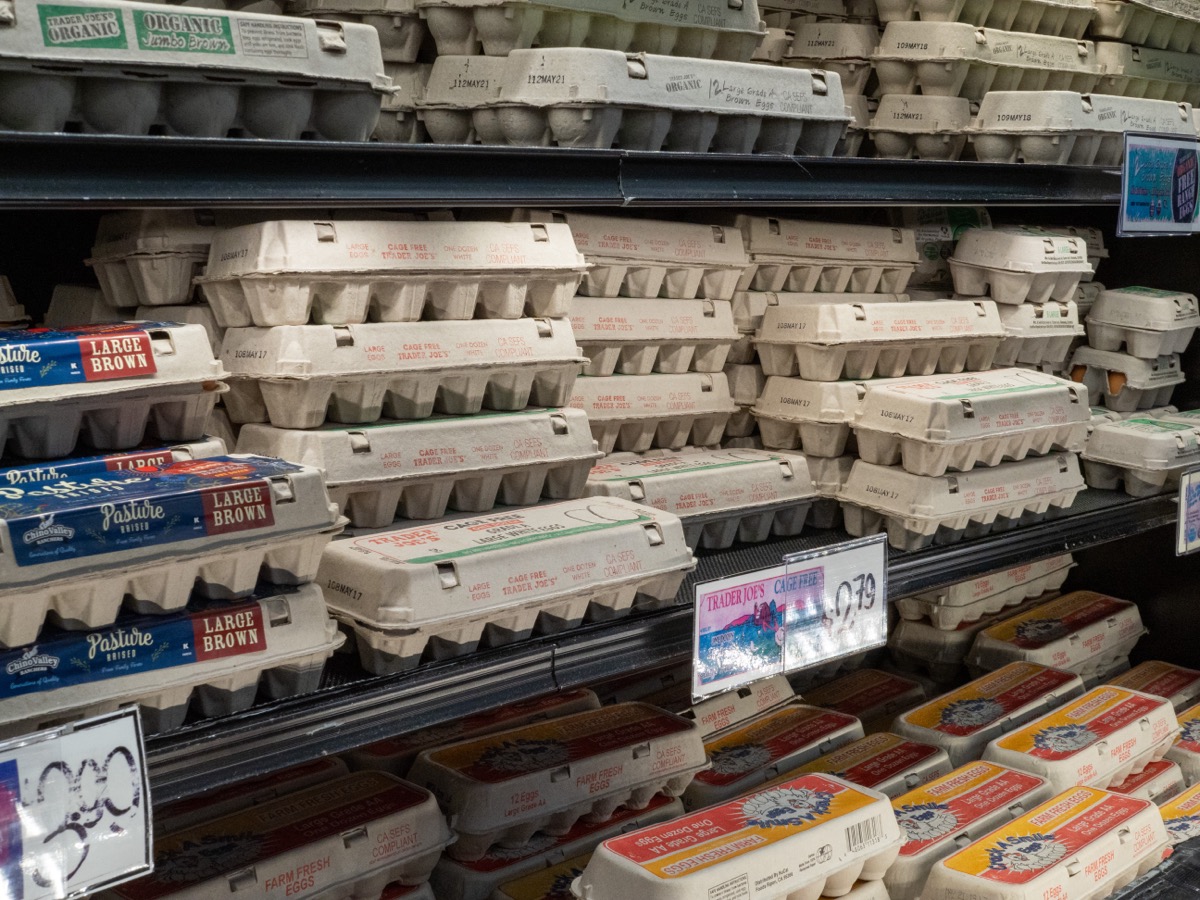
The ongoing egg shortage caused by the avian influenza is resulting in grocery stores clamping down on the amount of eggs you can buy every day. The latest store to impose limits? Trader Joe's. "Due to ongoing issues with the supply of eggs, we are currently limiting egg purchases to one dozen per customer, per day, in all Trader Joe's stores across the country," a grocery chain spokesperson told Good Morning America. "We hope these limits will help to ensure that as many of our customers who need eggs are able to purchase them when they visit Trader Joe's." What other major stores are limiting egg purchases, and is it even safe to eat eggs? We found out.
Costco, Sprouts, Whole Foods and Kroeger Also Limiting Purchases
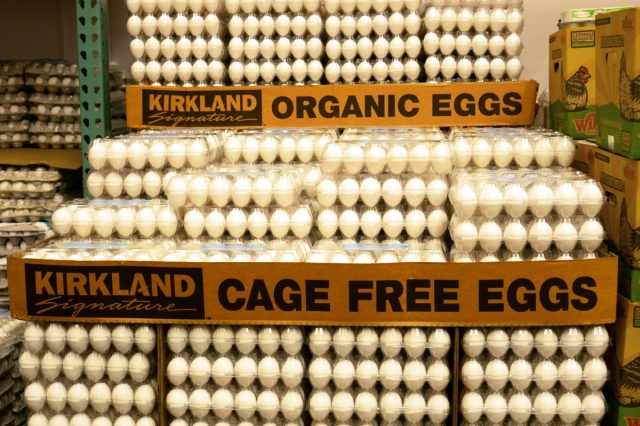
Costco, a store known for never denying customers a cart-full of whatever they want, also had to implement a new rule. Their eggs are typically sold in two dozen, four dozen packs, and five dozen packs, however, "Due to supply challenges caused by the highly pathogenic avian influenza, shell eggs and egg products may be short or cut from delivery orders without notice. We apologize for any inconvenience this may cause," Costco says on its website.
Kroger (one sign says they're limiting you to two cartons) and Sprouts are also limiting egg purchases. "Due to supply shortages, availability may be limited in the coming weeks. Limit 4 dozen eggs per visit," read a sign at the latter. Whole Foods, too, is clamping down.
Egg Prices are Also Rising
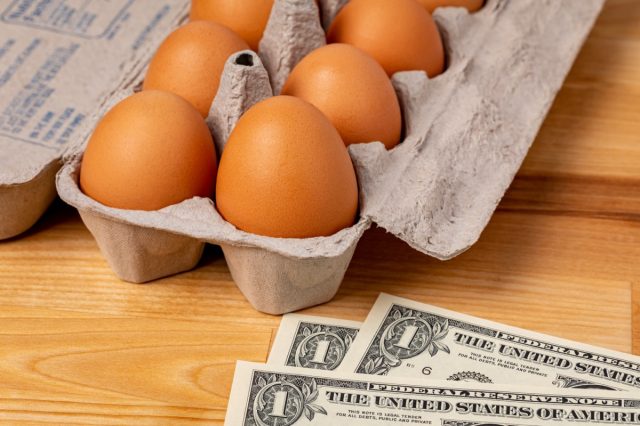
Egg prices have soared to unprecedented levels due to the ongoing bird flu outbreak, which has severely impacted the nation's egg-laying hen population. The average wholesale price for large white-shell eggs recently hit $8 per dozen, surpassing the previous record of $5.46 set in December 2022. That's why major grocery chains like Costco, Whole Foods, and Trader Joe's have responded by limiting egg purchases to manage the shortage. The U.S. Department of Agriculture reported a 3% drop in egg production in December, with projections indicating prices will rise another 20.3% in 2025 as the industry continues to struggle with supply chain disruptions.
Millions of Birds Have Been Culled
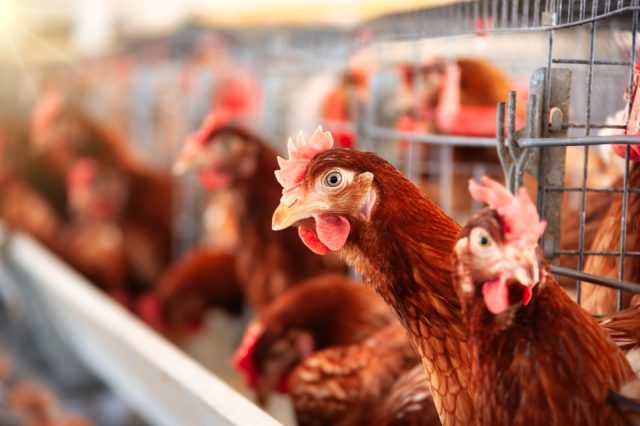
The bird flu outbreak has led to the culling of millions of birds across the United States in an effort to contain the virus and prevent its spread. Since the virus was first detected in the U.S. in 2022, over 136 million birds, including commercial poultry, have been affected. In the past 30 days alone, nearly 12 million new cases have been reported. When flocks are infected, they are immediately culled to halt transmission, a process that has significantly reduced the population of egg-laying hens. This drastic decline in poultry numbers is a primary factor behind the current egg shortage and skyrocketing prices.
"More than 150 million poultry birds have been killed in an attempt to combat the virus, known as H5N1, which has caused egg prices to soar and supply to be limited," reports ABC.
Is it Safe to Eat Eggs?

"The CDC says if eggs are cooked properly, they are safe to eat. This means cooking eggs to an internal temperature of 165 degrees Fahrenheit, which kills bacteria and viruses, including bird flu," By Shiv Sudhakar, MD writes for Today. "Experts also say eggs contaminated with bird flu are unlikely to make it to your kitchen because there are several safeguards in place. For example, farmers who notice a sick bird tend to cull the rest of the flock to stop the virus from spreading. Additionally, sick birds usually die before they can lay any infected eggs. Federal regulations also require eggs that receive a grade from the U.S. Department of Agriculture are sanitized before being sold."
Properly Handled Poultry Remains Safe to Consume, Says the CDC
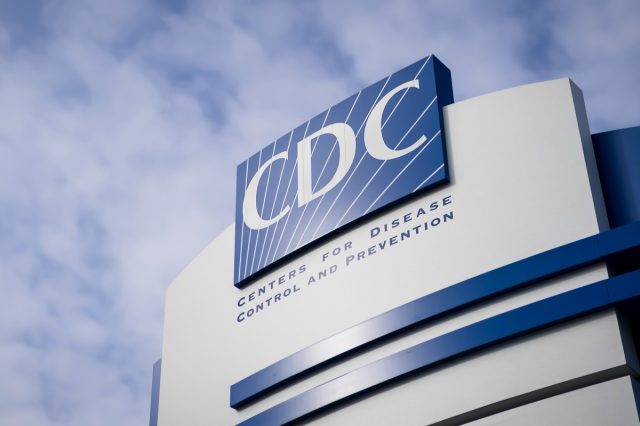
The H5N1 bird flu outbreak, which began in March 2024 with detections in U.S. dairy cows, has since spread widely among wild birds, caused sporadic outbreaks in poultry flocks, and led to ongoing multi-state infections in dairy herds. As of February 2025, 68 human cases have been confirmed in the U.S., mostly among dairy and poultry workers, with one death reported in Louisiana.
Despite these cases, the CDC maintains that the public health risk remains low, with no evidence of person-to-person transmission. The CDC is closely monitoring the situation using national flu surveillance systems and has provided protective guidelines for those in contact with potentially infected animals. While properly handled poultry and pasteurized dairy products remain safe to consume, the egg shortage has been exacerbated by outbreaks in poultry, fueling concerns amid the broader agricultural impact.









